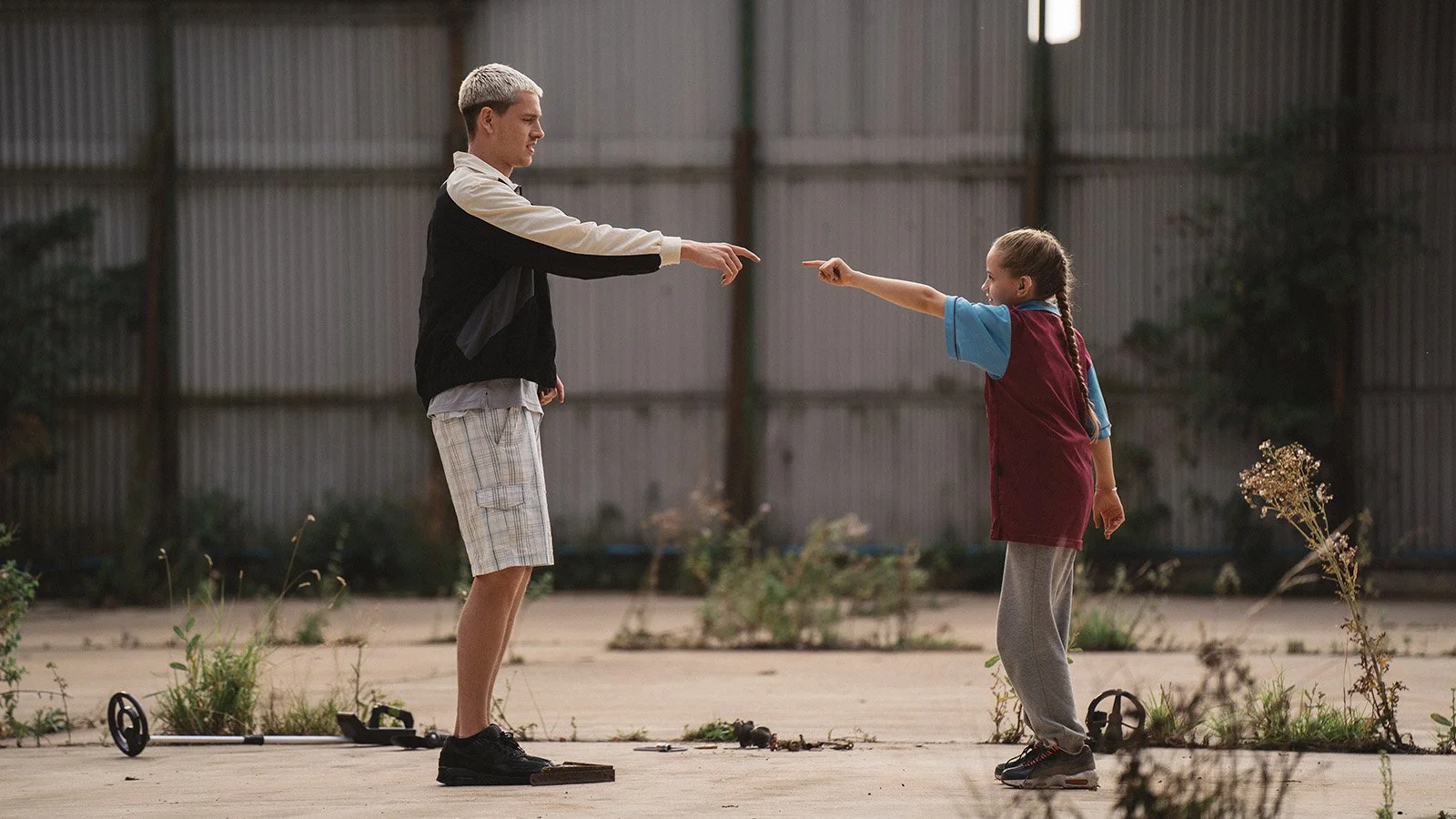SFF 2023 REVIEW: Scrapper
I knew two things about the film going in: a) Harris Dickinson was in it and b) it was going to make me cry. Those two things turned out to be true.
Image: Scrapper (courtesy of Sydney Film Festival).
Contains mild spoilers.
Scrapper (2023) is writer and director Charlotte Regan’s first feature film and you would not know otherwise. Regan has effortlessly crafted scenes which showcase heartbreak and juvenile mischief, with a dash of pseudo-nostalgia. The film premiered at the 2023 Sundance Film Festival, where it won the Grand Jury Prize in the World Cinema Dramatic Competition. It’s playful yet sombre, and invites the viewer to reflect on their own relationship with loss.
I knew two things about the film going in: a) Harris Dickinson was in it and b) it was going to make me cry. Those two things turned out to be true.
Dickinson plays an aloof baby daddy and ex-ticket seller for nightclubs in Ibiza, Jason, and has worked with Regan previously on the 2019 short film Oats & Barley. It is easy to forget his presence though as Lola Campbell (Georgie) is an absolute scene stealer. She is charismatic, cunning, and it’s hard to believe this is her debut role. Dickinson, fresh off the success of Triangle of Sadness (2022), delivers a very familiar performance, despite the fact Jason and Georgie’s dynamic is completely foreign to me. Jason seems to understand that his choice to leave twelve years ago was wrong and clearly doesn’t know how to patch things over, but he is determined to try. Overall, the performance we get from Dickinson reads more as a big brother than a father figure. I suppose this choice was based on the fact that Jason is Georgie’s father as a title, rather than in practice.
Jason and Georgie spend their time on screen together figuring out if they like each other. They ought to have a classic father-daughter relationship, but because of Jason’s immaturity and Georgie’s self-sufficiency, they end up more like equals, like two friends in primary school.
Regan worked with Production Designer, Elena Mutoni, to build the dreamy, pastel oasis (kind of) that is the housing-estate where the two reside. Colour is a major thread through the whole picture, not so much with the heroes but more so their surroundings. Each of the townhouses on Georgie’s block are painted a different neon pastel shade, her’s being canary yellow. Georgie does wear a self-imposed uniform, an old football shirt, which was a gift from her late mother (which we find out really came from Jason). Even though Jason technically has not been physically present in her life, we see evidence of his existence sprinkled about, For instance, he says to Georgie over breakfast that he had lived in the house before her.
Another bold style choice that Regan and her team pulled off was the injection of surrealism. Director of photography Molly Manning Walker ensures the viewer is kept at the edge of her seat with the fast-paced cutting, lens and frame shifting. There are also aside, confessional moments for the supporting characters which work to two ends: the first, a moment of pause in between the high stakes drama; and secondly, to build more of Georgie’s character in her absence. From the latter, the audience learns just how much of an impact this (motherless) twelve year old has had on her community. The dreamy clouds painted in her room, meltdowns, and obsession with reaching the sky to be with her mother again, all remind the viewer that she is not an adult, but has been forced to be a hyper-independent child due to her absent father.
Although, as a point, I believe the climax of the film, Jason and Georgie finally reconciling, is more glossed over than a true ending should be. We spend most of the film with the pair either fighting or learning to be in the same room. Regan toys with the audience’s emotions via a very long exposition, to have it all wrapped up quite abruptly. I understand (and appreciate) the 90-or-so minute runtime, but I needed some larger conflict overall to be satisfied as a viewer.

